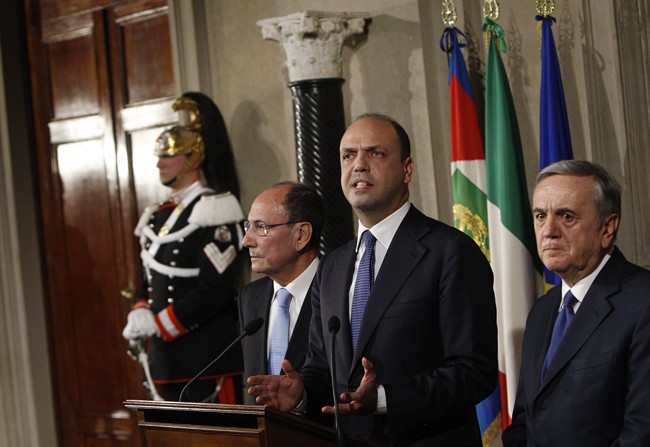ROME – Matteo Renzi has been summoned to the presidential palace, where the 39-year-old mayor of Florence is expected to be asked Monday to form a new government and become Italy’s youngest-ever premier.

The Democratic Party’s leader’s first challenge would be to form a coalition that is dynamic and harmonious enough in Italy’s squabbling landscape to kick-start the economy, create jobs and prod Parliament to enact electoral reforms designed to make the nation more governable.
President Giorgio Napolitano’s office announced Sunday that he will meet with Renzi the following day.
Through internal manoeuvring in the Democratic Party, Renzi engineered the collapse last week of Premier Enrico Letta’s government. That 10-month-old broad coalition of bitter rivals was cobbled together after last year’s election essentially yielded a political gridlock.
Only days before Democratic Party leaders used a no-confidence vote to force Letta to resign Friday, the ambitious Renzi had assured the premier that he had nothing to worry about – promising that he would only seek the premiership through the ballot box.
If he becomes premier now, Renzi would be the youngest one in the dozens of governments that Italy has had since the republic was formed after World War II.
Detractors who have criticized Renzi as too ambitious and power hungry have pointed out that Benito Mussolini also was 39 when Italy’s monarch asked the Fascist leader to form a government in 1922.
If tapped by Napolitano as expected on Monday, Renzi will have to try to forge a solid coalition government with centre-right and centrist parties, since his own Democrats cannot command a reliable majority in both chambers. Then Renzi must win mandatory confidence votes in Parliament, convincing lawmakers he is the man of the hour needed to be the premier of the economically-struggling country.
One hurdle emerged on Sunday.
Angelino Alfano, the leader of a centre-right force in Letta’s coalition, told his party’s base that he will demand promises from Renzi before joining the new government. Alfano, the interior minister in the outgoing government, pressed Renzi to identify his agenda’s goals.
Alfano claims that backing from his small party, which last year broke away from longtime conservative leader Silvio Berlusconi, will be “decisive.”
Renzi has alienated some in his own party by reneging on pledges to become premier only through a general election, not via the back-room moves that doomed Letta. Alfano loyalists could help make up for any support Renzi’s ruthless manoeuvr might have cost him in his own party.
Renzi’s abrupt betrayal of Letta only days after telling the premier not to worry about any move oust him has left many in the country wondering why such hurry.
Italy’s economy has just shown its first signs of positive growth after several years of shrinking or being stagnant. The much-watched “spread” between interest rates on Italian state bonds and benchmark German ones has narrowed since the turmoil in world financial markets forced Berlusconi to resign in 2011.
Asked on Sky TG24 TV what was behind Renzi’s abrupt power move, Economy Minister Fabrizio Saccomanni, who will be in Brussels on Monday for a meeting of EU finance ministers, cited “increasing impatience” with Italy’s economic morass.
Shortly before Renzi made his power grab, both the influential heads of Italy’s industrialists lobby and the chief of the nation’s largest labour confederation stepped up their grumbling about the slow pace of progress by the Letta government.



Comments